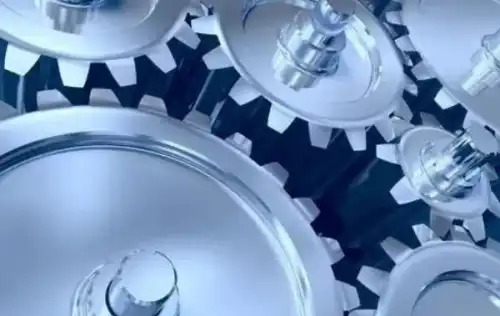With the widespread application of titanium alloy in power systems, its excellent specific strength, heat resistance, corrosion resistance, and low density have brought revolutionary changes to industries such as aviation, aerospace, shipbuilding, and chemical industry. However, surface protection of titanium alloy is particularly important during processing, assembly, and use, because titanium alloy is extremely sensitive to surface damage and has some inherent weaknesses.

Weaknesses and risks of titanium alloy
Titanium alloy faces a variety of potential risks during processing and use. Its blades are easily damaged during machining and polishing, and the destruction of surface integrity will significantly reduce the fatigue performance of parts. In addition, titanium alloy has poor anti-pollution ability and is prone to electrochemical corrosion when in contact with certain metals. Its low hardness, poor wear resistance, and sensitivity to hot salt stress corrosion are more likely to cause serious accidents in power systems, especially when serving in marine environments.
Protection requirements during titanium alloy processing
To ensure the integrity and performance of titanium alloy parts, a series of protective measures need to be taken during processing. First of all, machine tools and cutting tools with good rigidity, as well as special tooling with low vibration and strong rigidity should be used during cutting. There should be no active metal coating on the surface of the tooling to prevent electrochemical corrosion. The cutting depth should exceed the thickness of the cold-work hardening layer, and the tool should have wear resistance and high thermal hardness.
Surface protection during heat treatment of titanium alloys
Heat treatment of titanium alloys is a key step to eliminate residual stress and improve performance. During the heat treatment process, there must be no oil, fingerprints, or other contaminants on the surface of the titanium alloy. The heat treatment fixture must be made of stainless steel or high-temperature alloy, and the surface must be kept clean. For fine-machined titanium alloy parts, heat treatment must be carried out in a vacuum furnace or under argon protection to prevent oxidation.
Hydrogen embrittlement protection in the chemical processing of titanium alloys
Hydrogen embrittlement is a common risk of titanium alloys in chemical processing. To prevent hydrogen embrittlement, effective anti-hydrogen coatings must be used during heat treatment of titanium alloys, and hydrogen must be removed in time after treatment. Hydrogen is an extremely harmful impurity in titanium alloys. Its diffusion coefficient is small and it is not easy to escape from the coating. Therefore, strict measures must be taken to prevent excessive hydrogen absorption.
Summary
Surface protection of titanium alloys in power systems is a vital task. By taking appropriate processing and heat treatment measures, as well as using effective anti-hydrogen coatings, the risks of titanium alloy parts during processing and use can be significantly reduced, ensuring their stable and reliable performance.





